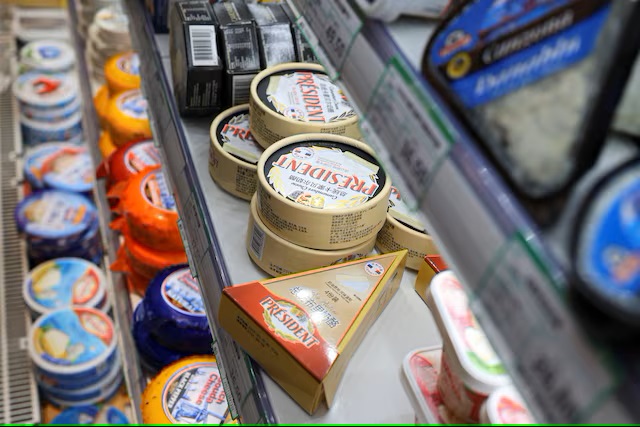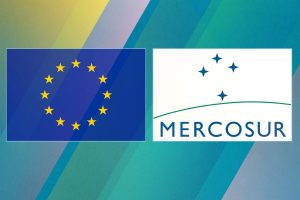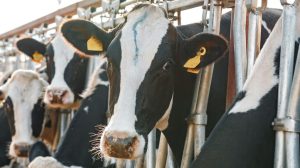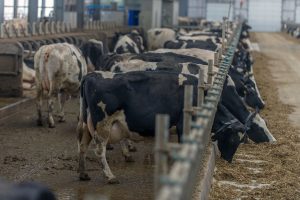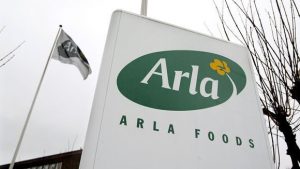China launched an anti-subsidy investigation into dairy imports from the European Union a day after the bloc’s revised tariff plan for China-made electric vehicles.
Wednesday’s
inquiry targeting cheese, milk and cream meant for human consumption came after the EU
amended proposed punitive duties on Chinese EV imports to 36.3% from an initial 37.6%. Beijing had urged Brussels to abandon the tariffs.
EUROPEAN UNION CHAMBER OF COMMERCE IN CHINA:
“Regrettably, the use of trade defence instruments by one government is increasingly being responded to seemingly in kind by the recipient government.
“Therefore, in view of the European Commission disclosing the definitive findings of its probe into EVs from China, China’s decision to launch an anti-subsidy probe should not be considered a surprise.
“The chamber will be monitoring the investigation and hopes it will be conducted fairly and transparently. We expect our affected member companies to co-operate to the fullest with the investigation.”
FRIESLANDCAMPINA:
Dutch dairy cooperative FrieslandCampina said it was aware of the announcement of the anti-subsidy investigation by China’s Ministry of Commerce.
“Naturally, we will provide the necessary information related to the investigation, if requested, in accordance with laws and regulations,” a spokesperson said.
The company’s specialised nutrition business sells infant nutrition products in China. In addition, FrieslandCampina has a small business selling condensed milk products and creamers for the business-to-business market.
THE IRISH FARMERS ASSOCIATION:
Tadhg Buckley, Director of Policy and Chief Economist at The Irish Farmers’ Association, the country’s largest farming lobby group, said Chinese authorities are looking predominantly at “cheese, cream and other related processed cheese, blue cheeses and cheeses of that type”.
He said that would account for about 45 million of 430 million euros ($478.55 million) worth of Irish exports last year, with specialised powders used for nutritional purposes making up the bulk of exports to China.
“If the investigation remains as it stands…it’s 45 million euros worth of product, but if it expanded outside into powders, it would certainly be a much different and much more significant issue for Ireland,” he said, adding that a trade delegation was heading to China at the end of the month.
IRISH MINISTRY FOR AGRICULTURE, FOOD AND THE MARINE:
“I will be engaging with the EU Commission to ensure that it has all of the data necessary in so far as Ireland is concerned to resolve any issues raised in the proposed investigation,” Charlie McConalogue, Ireland’s Minister of Agriculture, Food and the Marine, said.
“In this regard I am satisfied that European and Irish dairy exports are fully compliant with World Trade Organisation Rules.”
JACOB GUNTER, LEAD ECONOMY ANALYST AT MERCATOR INSTITUTE FOR CHINA STUDIES:
“Overall, all EU dairy exports to China come out to around 1.7 billion euros, which is less than 1% of total EU exports to China, so even if tariffs go so high as to de facto block all dairy trade, it will have a relatively small impact on EU exports.
“Nevertheless, the pain will be felt more acutely in the biggest exporters to China, from Irish butter to Finnish milk powder to Spanish Manchego to Italian Parmigiano Reggiano.
“China has been ramping up its own dairy production for years, and only a small portion of all dairy products consumed in China are imported.
“China is important for butter and cheese exports, but considering the size of the country, it is still a minor player.
“I expect that more ‘replaceable’ dairy products will be most affected by tariff hikes, as alternatives from the US, Canada, Australia, and New Zealand will be more cost competitive – think butter, milk, milk powder, cream, and the most common types of cheese.
“For less ‘replaceable’ product types – many of Europe’s high-end and specialized cheeses, for example – the main question will be at where the point a given product just becomes cost prohibitive.”
($1 = 0.8986 euros)

